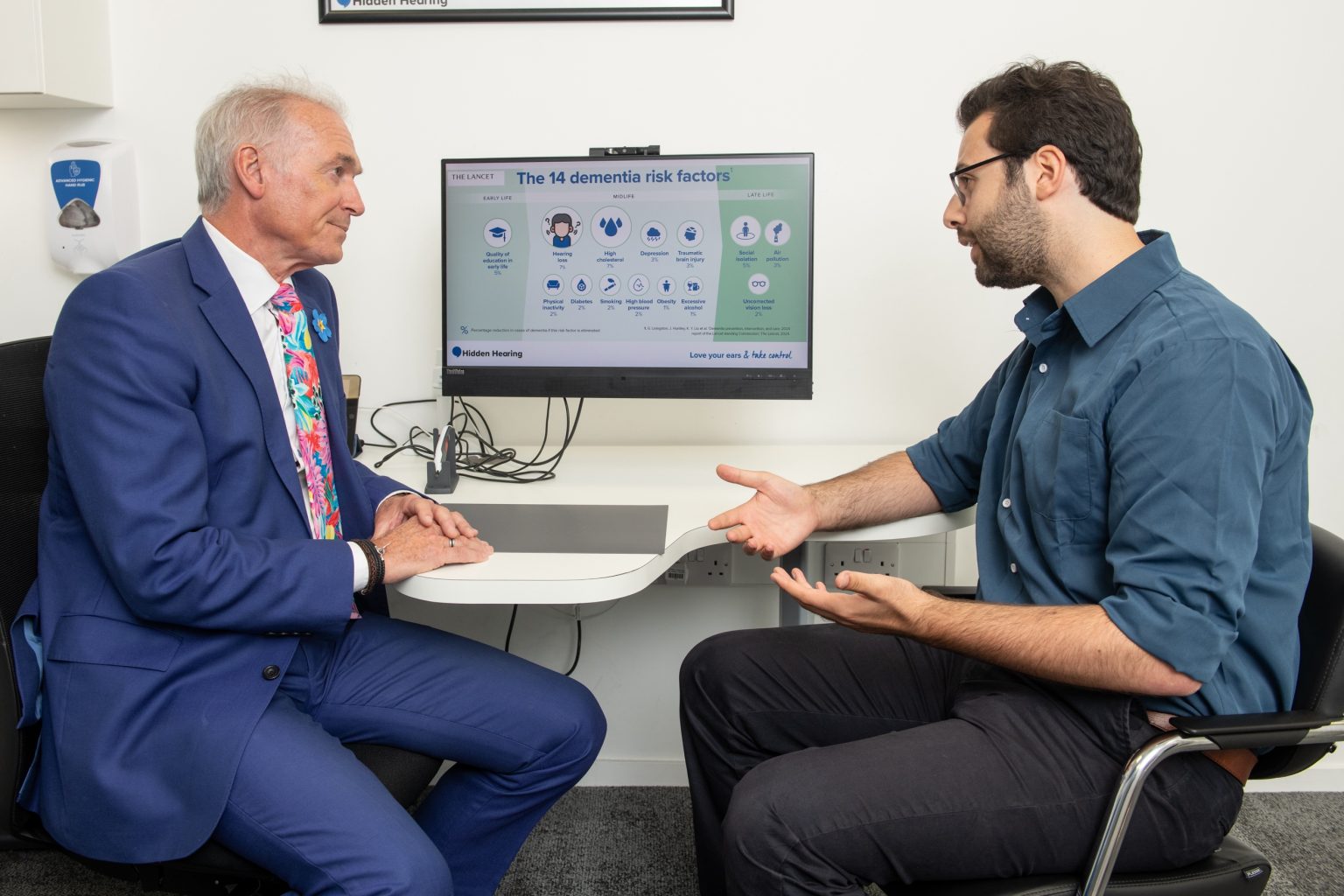Dementia is the condition Brits are most worried about developing – but three in four have no idea the onset can be caused by hearing loss.
A recent study [https://www.thelancet.com/journals/lancet/article/PIIS0140-6736(24)01296-0/abstract] claimed that tackling hearing loss can reduce the risk of dementia, but research of 3,000 adults found 55 per cent have shown at least one sign their hearing is beginning to wane.
A quarter struggle to hear speech clearly in a noisy environment, like the pub, and 18 per cent frequently ask people to repeat themselves.
While 17 per cent constantly have ringing in their ears, and 13 per cent resort to always having the subtitles on when they watch TV.
Despite this, 61 per cent have no intention of getting their hearing checked in the next 12 months.
As a result of the findings, TV’s Dr Hilary Jones has teamed up with the Alzheimer’s Society and Hidden Hearing, which commissioned the research, to raise awareness about the link between hearing loss and dementia [www.hiddenhearing.co.uk/hearing-loss-dementia].
And the Good Morning Britain GP has urged Brits as young as 30 to do more to look after their hearing when they notice it changing.
He said: “Dementia is the health condition many of us are most concerned about as we get older, yet awareness of the lifestyle change scientists have identified as most significant for reducing our risk – preventing and managing hearing loss – is still incredibly low.
“Mild hearing loss doubles the risk; moderate loss triples it – and severe loss increases it by up to five times.
“If you are having to put subtitles on the TV, can’t hear people where there’s background noise, or are experiencing ringing in your ears, these are common signs of age-related hearing loss – which can start as early as in your 30s.
“We need to do more to push hearing up the health agenda – its link with our wider physical and mental health from 30 into midlife and beyond is not being talked about enough.”
The research found dementia ranked as the number one health concern for adults as they age (37 per cent), ahead of a heart attack or heart disease (31 per cent).
The levels of concern about dementia are highest among adults between 40 and 74 – the age group eligible for free NHS checks to help prevent and manage the condition.
But just 22 per cent have taken up an appointment for one of these free GP checks.
Of those eligible for a free NHS check-up, nearly nine in 10 (85 per cent) have never received advice from a medical professional about looking after their hearing or getting it tested
With only seven per cent of them having a hearing test over the past year, with just a further 15 per cent considering doing so.
In comparison, 62 per cent have had, or are considering, an eye test.
Laura Ewen, a senior audiologist at Hidden Hearing, which is donating £1 to the Alzheimer’s Society for every hearing test booked in the week leading up to Alzheimer’s Awareness day on September 21, said: “The signs of hearing loss often develop slowly over time, making them difficult for the person affected to notice them.
“Knowing what the signs are can help us all to take steps to improve our hearing and reduce our risk of dementia.
“Getting your hearing tested if you notice any change, and every two years after the age of 55, is a simple change we can all make.
“Unlike eye tests, a hearing test is free on the high-street and you don’t need to see a GP first to book a test.”
SIX EARLY SIGNS OF HEARING LOSS
1. Difficulty following conversations – You have difficulty following conversations when there’s one or more people, or when there’s background noise.
2. Phone conversations are unclear – You have trouble following phone conversations, both in quiet and noisy places.
3. People seem to be mumbling – You often ask people to repeat themselves due to sounds not being clear.
4. Difficulty locating sounds – You find it tricky pinpointing where sounds are coming from, which can be confusing.
5. Signs of tinnitus – You experience ringing or buzzing sounds in your ears, which is known as tinnitus.
6. Turning up the TV too loud – Your friends and family say you have the TV up too loud when they come over, or when you visit them.
